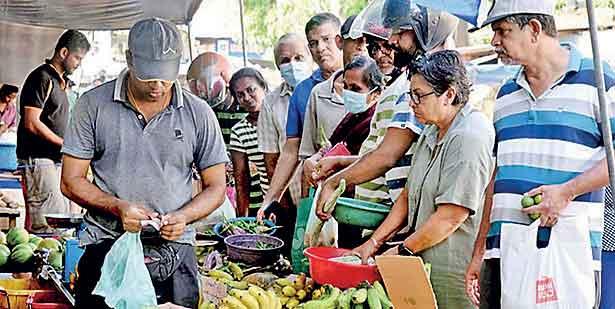02 Jan 2025 - {{hitsCtrl.values.hits}}

The consumer prices in Sri Lanka’s Colombo district rose 1.2 percent in December from the previous month, reversing a 0.3 percent decline in November and breaking a months-long trend of falling prices that began in July.
The increase was driven by the rising food costs, highlighting pressure on the household budgets.
Measured from a year ago levels, the prices however declined by 1.7 percent, continuing deflation for the fourth consecutive month but slowing from the 2.1 percent decline seen through November 202
While deflation is very much a welcome phenomenon in Sri Lanka for those who underwent manifold increases in the prices of almost everything, further increases in prices, especially of the essentials, hit hardest on their pocketbooks, without a corresponding increase in their incomes.
For instance, the vegetable prices rose sharply in December from the November levels, followed by the prices of coconut and rice, with the latter two having become a prolonged issue inviting even the government to interfere with the price controls on rice, with limited success so far.
This in fact took the food prices higher by 3.9 percent in December, from a decline of just 0.1 percent in November while the annual price increase accelerated somewhat to 0.8 percent, from 0.6 percent.
The food prices have now exited deflation completely, especially with the sharp monthly climb in the prices in December.
The non-food prices still remain in deflation as the monthly prices continued their decline by 0.1 percent, slowing from 0.3 percent while the annual prices fell by 3.0 percent, slowing from 3.3 percent through November, as the repeated cuts to the fuel prices and thereby the cost of transport are weighing down on the non-food price index in the current period.
Meanwhile, the so-called core-prices, which are measured barring the often-volatile food, energy and transport, rose by 2.7 percent, which was similar to the increase seen through November.
The Central Bank effectively cut the key policy rate by 50 basis points at its last meeting for the year held in November, as it saw the current deflation in the headline inflation to persist through most of the first half of this year, before converging at their desired goal of 5.0 percent thereafter.
04 Jan 2025 3 hours ago
04 Jan 2025 3 hours ago
04 Jan 2025 3 hours ago
04 Jan 2025 5 hours ago
04 Jan 2025 5 hours ago